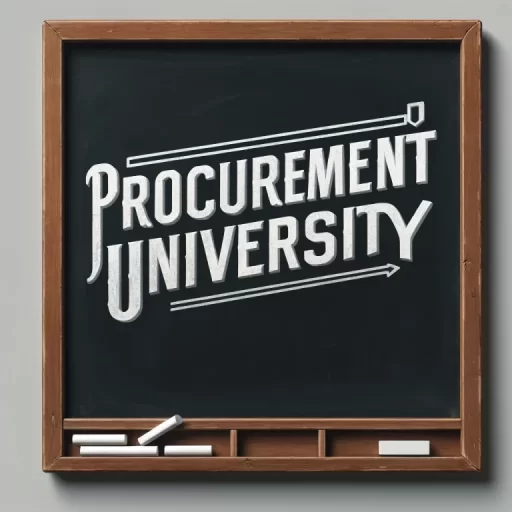Procurement University 102: Essential Procurement Strategies
Welcome to Procurement 102! In this informational reading, we’ll explore fundamental procurement strategies that are essential for anyone looking to deepen their understanding of procurement practices.
Supplier Performance Management
Supplier performance management involves evaluating and monitoring the performance of your suppliers to ensure they meet your organization’s standards. This includes assessing factors such as quality, reliability, delivery times, and customer service. By effectively managing supplier performance, you can maintain consistency in product or service quality and mitigate risks in your supply chain.
Contract Management
Contract management is the process of creating, negotiating, and managing contracts with suppliers. Contracts outline the terms and conditions of your agreements, including pricing, delivery schedules, and quality standards. Proper contract management helps ensure that both parties fulfill their obligations, reduces misunderstandings, and provides a framework for resolving disputes.
Category Management
Category management involves organizing your procurement activities into specific categories, such as office supplies, IT services, or raw materials. By grouping similar items together, you can develop specialized strategies for each category, such as supplier consolidation, volume discounts, or strategic partnerships. Category management helps optimize your procurement process and maximize value for your organization.
Total Cost of Ownership (TCO) Analysis
TCO analysis is a method for evaluating the total cost of acquiring and owning a product or service over its entire lifecycle. This includes not only the initial purchase price but also factors such as maintenance, training, and disposal costs. By considering the total cost of ownership, you can make more informed procurement decisions and choose suppliers that offer the best overall value.
Supplier Relationship Management (SRM)
Supplier relationship management focuses on building and maintaining positive relationships with your suppliers. This involves effective communication, collaboration, and mutual trust. By developing strong relationships with your suppliers, you can improve responsiveness, innovation, and overall performance in your supply chain.
By mastering these fundamentals, you’ll be better equipped to optimize your procurement process, minimize risks, and drive value for your organization.

